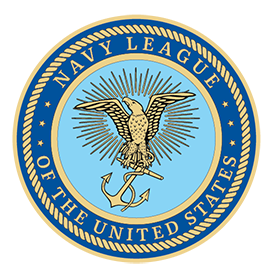| CREATING CRITICAL TEAMWORK | |
| Wednesday, January 02, 2019 | |
|
By ALAN KAPLAN, Navy League National President With the passing of President George H.W. Bush, a former Navy pilot and war hero who survived being shot down and avoided capture in bombing raids on Chichijima, Japan, I’ve spent time during the last month reflecting on the state of our sea service challenges then versus now. President Bush oversaw what truly was the end of a long, arduous era for the United States — the tense competition of the Cold War. The period saw the United States rise to do some of its greatest work, excelling in the space race and putting man on the moon. But it also saw many moments that tried our still young nation, with the peak fervor occurring during the Cuban missile crisis. President Bush was a strong international diplomat and during his one term in office he oversaw many high-profile moments that are playing out once again on the global stage. With the first Gulf War, there was a sound and swift victory. And we saw the end of tension dating back to the 1940s with the fall of the Berlin Wall. However, history has a habit of repeating itself. The early 2000s saw a new Middle East uprising with his son, George W. Bush, as president. And now, after decades of enjoying uncontested global dominance, the United States and our armed forces are once again surveying a world where there is “great power competition,” as Chief of Naval Operations Adm. John Richardson has coined it. Our access to resources, sea lanes and more assets than our competition is no longer a given. We must once again fight to maintain our dominance in the face of a rising China and a persistent Russia." As we move into this great power competition, as we build a more lethal Navy, as we build more ships, more advanced technology, talented Sailors — none of those by themselves are sufficient to respond to today’s complex challenges without commanding officers of ships that are focused on competition, focused on building teams that can go out there and compete and win,” Adm. Richardson said during a 2018 speech at a public policy event. Winning teams of peers and allies are the key to overcoming these international challenges and strengthening our sea services so their dominance ensures our peace. And we at the Navy League are a part of that team. It is through our service that the American public is aware that the United States is a maritime nation. Our work on Capitol Hill, through letter-writing campaigns, our “Maritime Policy Statement,” and by knocking on doors of our representatives in Washington and around the country, ensures that the needs of our sea services are met. We create important ties through our work at industry events, from our own Sea-Air-Space to establishing U.S. pavilions at maritime exhibitions around the world. We offer essential education to the community through this magazine and other communication channels. And when we raise funds here at our national headquarters, it is to ensure our sea services have the talent they need for the future, through our scholarships and support of youth programs like the U.S. Naval Sea Cadets. Our Navy League is a critical member of our sea services’ team, and it’s apparent through our reputation among their leaders that we are a winning team. We must continue this work for our cause. To be effective, this means working together as one team to ensure our organization is agile and streamlined — by strengthening our teamwork with each other, we are enabling our sea services to take up that “great power competition” and win.
|
|

